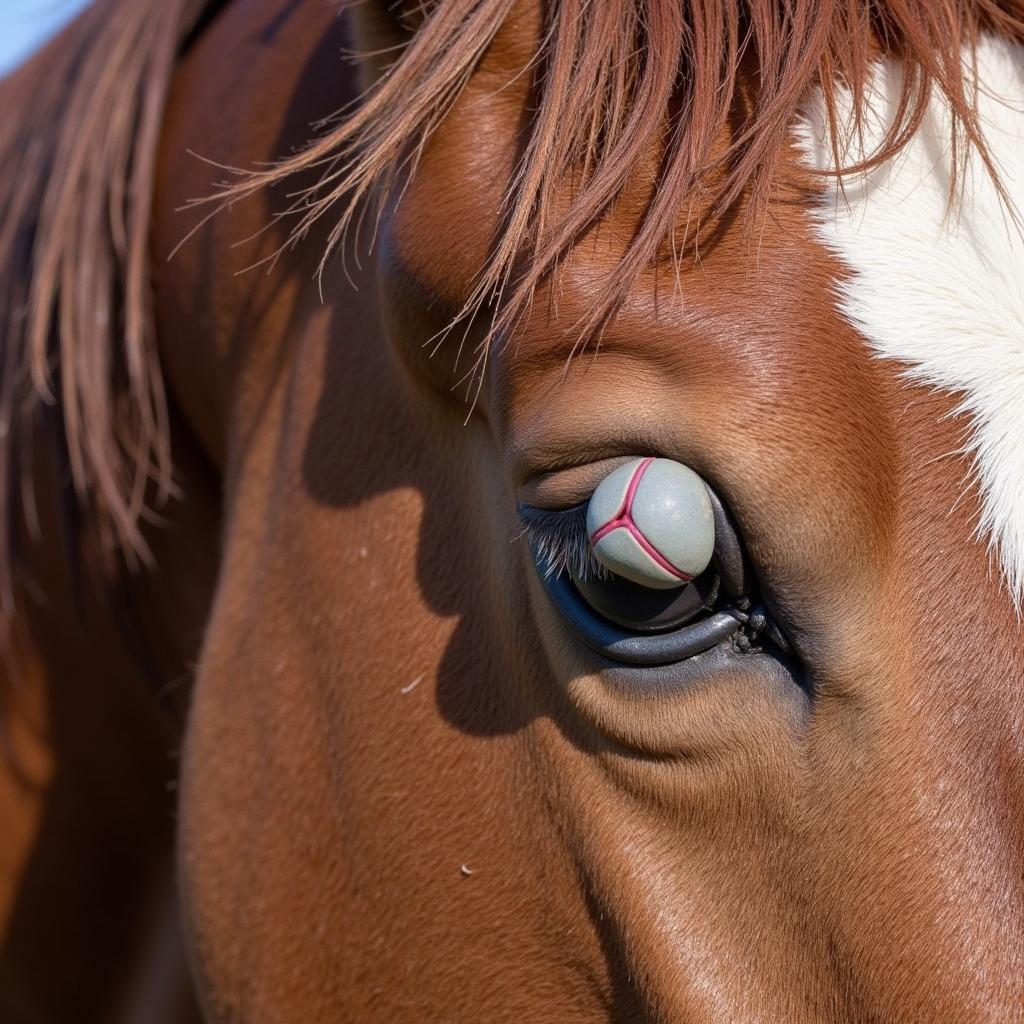Cattle Fly Tags For Horses are a popular fly control method, offering a convenient and often cost-effective solution for horse owners. But are they safe and effective? This article dives deep into the world of cattle fly tags for horses, exploring their benefits, potential risks, and best practices for application. We’ll help you decide if this fly control method is right for your equine friend.
Understanding Cattle Fly Tags and Their Use on Horses
Cattle fly tags are small plastic devices impregnated with insecticides designed to control flies and other external parasites on cattle. These tags are typically attached to the animal’s ear. While designed for cattle, some horse owners use them on their horses, often attracted by their affordability and ease of use. However, it’s crucial to understand the potential implications before using these tags on your horses.
Are Cattle Fly Tags Safe for Horses?
The safety of using cattle fly tags on horses is a complex issue. While some horse owners report success with no adverse effects, others have experienced negative reactions. The primary concern stems from the insecticide concentration in cattle tags, which may be higher than what’s safe for horses. This can lead to skin irritation, allergic reactions, or even more serious health problems if the horse ingests the tag or a portion of it. It’s essential to consult with a veterinarian before using any off-label product, including cattle fly tags, on your horse.
 Cattle Fly Tag Attached to a Horse's Ear
Cattle Fly Tag Attached to a Horse's Ear
Choosing the Right Fly Control Method for Your Horse
There are many effective fly control methods specifically designed for horses. These include fly sprays, roll-ons, fly sheets, and feed-through supplements. While these options might be more expensive than cattle fly tags, they offer a safer and often more effective approach tailored to the specific needs of horses.
Benefits and Risks of Using Cattle Fly Tags on Horses
While cost-effectiveness and ease of application are potential benefits, the risks associated with using cattle fly tags on horses often outweigh the advantages. Potential risks include insecticide toxicity, skin reactions, and the possibility of the horse ingesting the tag.
Insecticide Toxicity in Horses
Horses are more sensitive to certain insecticides than cattle. Using a cattle fly tag on a horse could result in insecticide toxicity, manifesting as various symptoms, from mild skin irritation to more serious neurological issues.
Alternatives to Cattle Fly Tags for Horses
Numerous horse-specific fly control products provide safe and effective protection. Fly masks, fly sheets, fly sprays, and even natural repellents like essential oils offer viable alternatives to cattle fly tags.
Consulting Your Veterinarian: The Best Approach
Before using any fly control method on your horse, especially one designed for another species, consulting your veterinarian is crucial. They can assess your horse’s specific needs and recommend the safest and most effective fly control strategy.
Expert Advice on Fly Control for Horses
“Using products designed specifically for horses is always the best practice. Cattle and horses metabolize insecticides differently, and using a cattle product on a horse could have unintended consequences,” says Dr. Emily Carter, DVM, specializing in equine medicine.
Conclusion: Prioritizing Your Horse’s Safety with Effective Fly Control
While cattle fly tags for horses might seem like a budget-friendly solution, the potential risks associated with their use make them a less desirable option. Prioritizing your horse’s health and safety by choosing horse-specific fly control methods, guided by your veterinarian’s advice, is always the best course of action.
FAQ
- Can I use a cattle fly tag on a miniature horse? No, miniature horses are even more susceptible to insecticide toxicity.
- What should I do if my horse ingests a cattle fly tag? Contact your veterinarian immediately.
- Are there natural fly repellents for horses? Yes, certain essential oils and fly predators can be effective.
- How often should I apply fly spray to my horse? Follow the product label instructions.
- What is the most effective fly control for horses? A combination of methods often yields the best results.
- How can I prevent flies from breeding around my barn? Maintain a clean environment and manage manure properly.
- Do fly sheets protect horses from all types of flies? Different fly sheets offer varying levels of protection.
Need assistance? Contact us at Phone Number: 0772127271, Email: [email protected] or visit our address: QGM2+WX2, Vị Trung, Vị Thuỷ, Hậu Giang, Vietnam. We have a 24/7 customer support team.